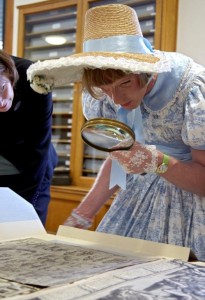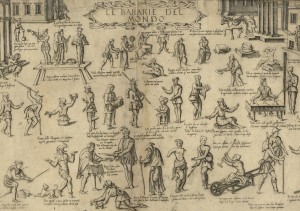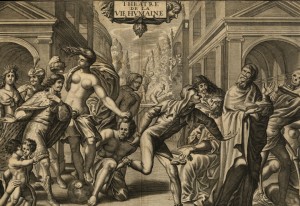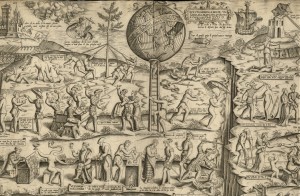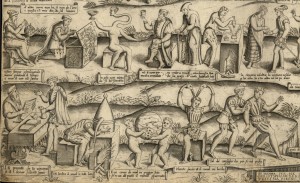Douce befriended some of the most celebrated artists of his time and his collections were widely used by them. When Grayson Perry visited the Ashmolean Print Room a few weeks ago, it was great fun to select some of Douce’s prints for him to see:
The prints that Grayson Perry is examining through the magnifying glass above are kept with Douce’s ‘drolls and fanciful vagaries’, which I am cataloguing at the moment. They include this sixteenth-century repertory of ‘typical market day distractions’ by Girolamo Porro:
And the Theatre of Human Life, in which Fortune appears on a stage distributing roles and costumes to the men and women who thus become kings, queens, merchants, beggars, slaves, fools, scholars, etc. Their performance is, however, ended abruptly by the figure of Death, who disrobes them and pushes them off the stage on the right:
But my favourite print in the selection is undoubtedly this Cage of Fools, or Gabbia dei Matti, published in Modena by Cristofano Bertelli. The engraving is full of wonderfully odd details, such as the naked woman with a meandering neck (Greed) or the young man whose lifted arms end in storcks’ heads:

